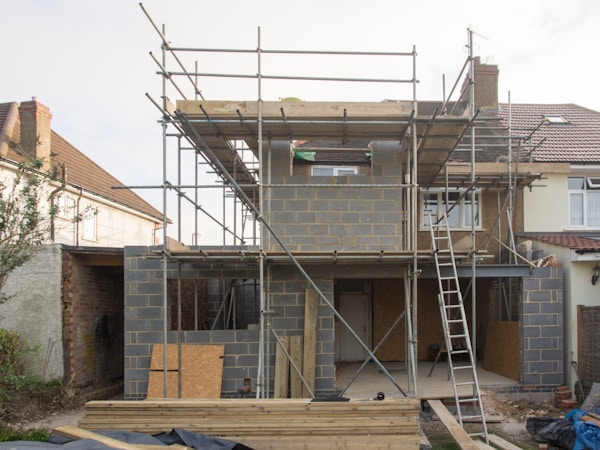When it comes to updating your home, it’s essential to understand the differences between renovating and remodeling. While these terms are often used interchangeably, they refer to distinct processes with unique results. To make informed decisions and effectively plan your project, you must know when to renovate vs remodel. Keep reading to explore the differences between these two home improvement approaches and learn when each one is most suitable.
Understanding Renovation
Renovation refers to the process of restoring or repairing an existing structure to improve its appearance, functionality, or both. It often involves less extensive work than remodeling and can include painting walls, updating fixtures and hardware, refinishing floors, or replacing windows. Renovation projects primarily focus on maintaining the existing layout and design of your home while enhancing its overall look and feel. This approach is ideal for homeowners who are generally satisfied with their home’s current layout but want to modernize their living space.
One of the primary benefits of renovation is that it often requires a smaller budget compared to remodeling. By limiting the scope of your project to specific areas in need of improvement, you can make a significant impact on your home’s aesthetics and function without breaking the bank. Additionally, renovation projects generally take less time to complete, allowing you to enjoy your updated home sooner. If you’re interested in optimizing your living space while preserving your home’s original design, renovation may be the right choice for you.
However, it’s crucial to recognize when renovation might not be the best solution. When dealing with structural damage, outdated electrical or plumbing systems, or other significant underlying issues, more extensive work may be necessary. In these cases, investing in a renovation project may not address the root problems and create ongoing challenges down the line. Assessing the state of your home and identifying any major concerns is essential in determining whether a renovation project is sufficient for your needs.
Exploring Remodeling

Remodeling goes beyond updating the appearance of your home and entails altering the structure, layout, or function of a space. Common remodeling projects include kitchen overhauls, bathroom redesigns, and room additions or conversions. This type of home improvement is ideal for those who desire significant changes to their living environment, whether due to lifestyle needs or personal preferences.
While remodeling projects generally have a higher upfront cost than renovations, they can significantly boost your home’s value and enhance your overall quality of life. By transforming outdated or dysfunctional spaces into modern, functional areas tailored to your needs, you can create a living environment that meets your specific requirements. This level of customization far exceeds what is offered by most renovation projects, making it ideal for homeowners in need of substantial changes.
It’s important to remember that remodeling projects are more complex and time-consuming than renovations. This entails coordinating with designers, architects, and contractors, obtaining permits, and potentially navigating additional complications along the way. However, the substantial benefits gained through remodeling often outweigh the additional time and resources required, resulting in a living space that is tailored for you and your family’s enjoyment.
Choosing the Right Project for Your Home
Evaluate whether you’re looking for updates or a complete transformation, and consider factors such as your budget, time constraints, and how the project aligns with your long-term goals for your home. It’s also crucial to consult with professionals, who can provide guidance and insights about what would be most suitable for your home and lifestyle.
Keep in mind that it’s possible to combine renovation and remodeling aspects in a single project. For example, you may want to modernize your kitchen by replacing cabinets and fixtures while also altering the layout to improve flow and functionality. By blending the best of both approaches, you can create a living space that strikes the perfect balance between aesthetics and practicality.
Ultimately, knowing the difference between renovations and remodels can empower you to choose the most appropriate course of action for your home improvement project. By understanding the time, financial, and personal commitment involved in each type of project, you can ensure that your investment delivers the desired outcomes and enhances your living environment in meaningful ways.
Preparing for Your Home Improvement Project

Before embarking on any home improvement project, it’s crucial to plan carefully and gather all necessary information. Start by consulting with professionals who can provide expert guidance and help you make informed decisions. Research materials and suppliers to ensure you choose quality products that will enhance your home’s value and durability while meeting your aesthetic preferences.
Furthermore, create a realistic budget and timeline for your project. Consider potential unforeseen expenses and give yourself some cushion to accommodate any unexpected issues or delays. Proper planning will help minimize stress and ensure a smoother, more enjoyable home improvement experience.
Overall, understanding the distinctions between renovation and remodeling can guide your decision-making process and help you choose the best course of action for your home improvement project. By considering your unique needs and goals and collaborating with professional experts, you can create the perfect living space that meets your expectations and enhances your quality of life.


















